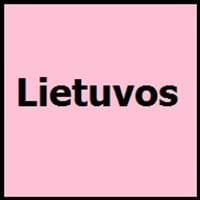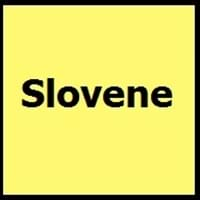Lithuanian vs Slovene
- Lithuanian has many loanwords that originate from Slavic, Germanic and other Baltic languages.
- "Catheciusmus" is the oldest known book in Lithuanian language in 1547.
- The Freising Monuments is the oldest preserved records of written Slovene from 10th century.
- The first Slovene book was printed in 1550.
Lithuanian and Slovene Language History
Comparison of Lithuanian vs Slovene language history gives us differences between origin of Lithuanian and Slovene language. History of Lithuanian language states that this language originated in c. 1503 whereas history of Slovene language states that this language originated in 972-1093. Family of the language also forms a part of history of that language. More on language families of these languages can be found out on Lithuanian and Slovene Language History.
Lithuanian and Slovene Greetings
People around the world use different languages to interact with each other. Even if we cannot communicate fluently in any language, it will always be beneficial to know about some of the common greetings or phrases from that language. This is where Lithuanian and Slovene greetings helps you to understand basic phrases in Lithuanian and Slovene language. Lithuanian word for "Hello" is Sveiki or Slovene word for "Thank You" is Hvala. Find more of such common Lithuanian Greetings and Slovene Greetings. These greetings will help you to be more confident when conversing with natives that speak these languages.
Lithuanian vs Slovene Difficulty
The Lithuanian vs Slovene difficulty level basically depends on the number of Lithuanian Alphabets and Slovene Alphabets. Also the number of vowels and consonants in the language plays an important role in deciding the difficulty level of that language. The important points to be considered when we compare Lithuanian and Slovene are the origin, speaking countries, language family, different greetings, speaking population of these languages. Want to know in Lithuanian and Slovene, which language is harder to learn? Time required to learn Lithuanian is 44 weeks while to learn Slovene time required is 44 weeks.





